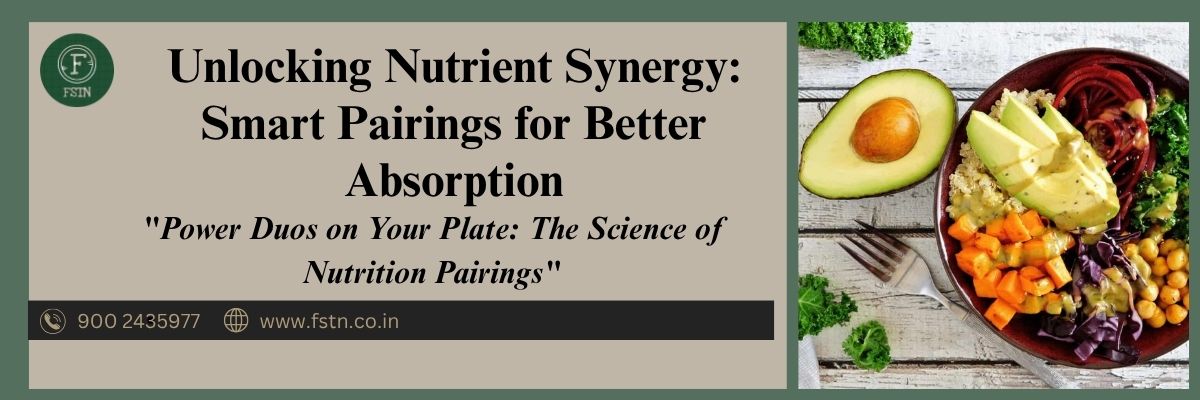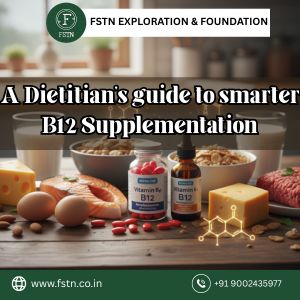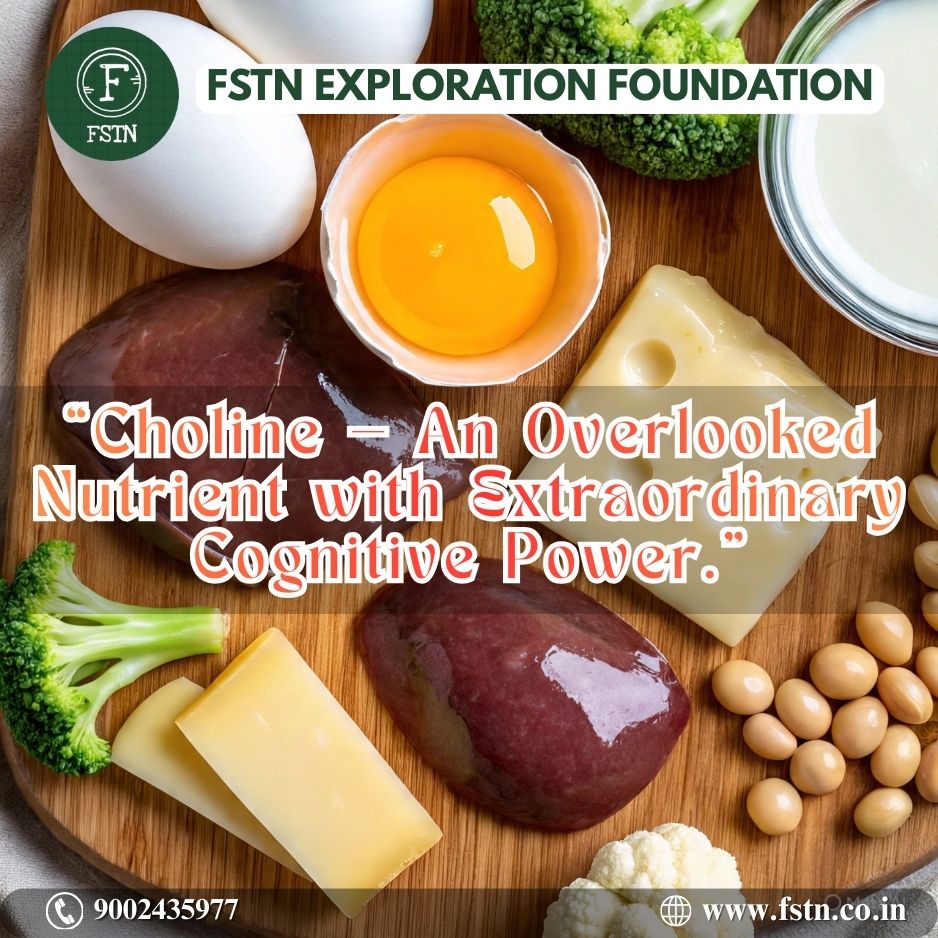In the world of nutrition, the bioavailability of nutrient is just as critical as their intake. How these foods are combined matters just as much. Smart nutrient pairings- sometimes called nutrient synergy - can significantly boost nutrient absorption. Let's uncover some hidden evidence backed nutrient pairings that can supercharge your nutrition game with impaired absorption.
The Winning Absorption Allies:
Iron and Vitamin C: Non-heme iron from plant sources is not easily absorbed by the body. Vitamin C enhances iron absorption by converting it into a more bioavailable form and preventing it from binding to dietary inhibitors.
Evidence: Just 100 mg of vitamin C can increase iron absorption by up to 67%.
Curcumin and Piperine: Curcumin, the active compound in turmeric, has low natural bioavailability. Piperine, an active compound in black pepper, can enhance curcumin absorption by approximately 2000%.
Mechanism: Piperine inhibits hepatic and intestinal enzymes that degrade curcumin.
Vitamin D and Magnesium: Magnesium is required for the enzymatic activation of vitamin D in the liver and kidneys. Without adequate magnesium, vitamin D remains inactive and less effective in calcium regulation and immune function.
Calcium and Inulin (Prebiotic Fiber): Inulin, a fermentable fiber, promotes mineral solubility and absorption in the colon. It supports gut health while enhancing the bioavailability of calcium, particularly important in bone development and postmenopausal care.
Beta-Carotene and Healthy Fat: Beta-carotene is a fat-soluble nutrient that requires dietary fat for optimal absorption. Fat facilitates micelle formation in the intestine, improving transport across the gut lining and conversion to active vitamin A.
Zinc and Protein (Animal-Based): Zinc is more efficiently absorbed in the presence of amino acids such as cysteine and methionine, typically found in animal proteins. These amino acids help form soluble complexes with zinc that improve uptake in the small intestine.
Vitamin K2 and Healthy Fat: As a fat-soluble vitamin, vitamin K2 needs the presence of dietary fats to be effectively digested and absorbed. This is particularly relevant for calcium metabolism and cardiovascular protection.
Vitamin A and Zinc: Zinc is essential for the conversion of vitamin A into its active form (retinal), which is crucial for vision, immunity, and cellular health. Zinc deficiency can impair this activation and reduce the efficacy of vitamin A.
To Sum It Up:
Eating healthy isn’t just about choosing the right foods—it’s also about how those foods work together. Some nutrients need a little help from their partners to be fully absorbed and used by the body. By learning about these smart pairings, you can make your meals more effective without making them more complicated. So next time you’re in the kitchen, think about the combinations on your plate. Sometimes, it’s the quiet teamwork between nutrients that makes the biggest difference to your health.



